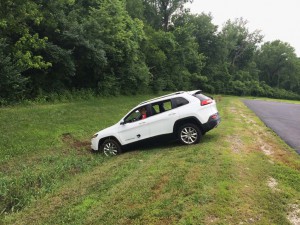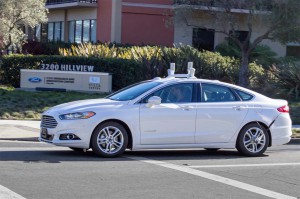After being ignored for years, the cybersecurity of automobiles has become a major concern for carmakers and is now expected to grow quickly into a $759 million industry by 2023, according to a new study by IHS Automotive.
The IHS study noted one result of connected car growth – there are estimated 112 million connected vehicles on the road now – is that cars and trucks are now more susceptible to cyberattacks through the many wireless and wired connections.
Hackers are getting more savvy in perpetrating cyberattacks – more easily and cost effectively – on connected vehicles, IHS concluded, noting that carmakers have increased their efforts to make systems more secure.
Jeremy McClain, director of systems and technology for Continental’s NAFTA region, said this week that every team at Continental working on systems aimed at making driving safer and easier now has cyber security experts attached to it to protect it from hacking.
Volkswagen AG announced this month that it plans to form a partnership with an Israeli security firm that will be targeted against cyber intruders. The new joint venture will be Cymotive Technologies, VW said.

Last year, security experts managed to hack into a Jeep Cherokee and remotely drive it into a ditch.
Volkswagen did not say how much it plans to in invest in the joint venture but companies such as General Motors, Ford and Honda have all increased efforts in the field of cybersecurity. Fiat Chrysler, which has seen its vehicles compromised in some high-profiled events, has even begun inviting hackers to attack their systems, a practices borrowed from Silicon Valley.
(Tesla updates software after Chinese hackers take control of a Model S. For more, Click Here.)
“Cybersecurity will be one of the toughest challenges that the auto industry will face in the next decade or two,” said Colin Bird, senior analyst, connected car consumer insights and software, apps and services (SAS) for IHS Markit and one of the report’s co-authors. “Especially as more vehicles with telematics and embedded modems make connected cars an attractive target to cyber criminals, terrorists and nation states.”
The automotive cybersecurity market is evolving towards two distinct segments, according to IHS Markit research.
Some cybersecurity software programs will be installed on the many special-purpose computers and data buses that control and regulate vehicle functions such as the airbags and fuel intake. These special computers are known in the industry as electronic control units or ECUs.
The other segment will be cybersecurity cloud services. These cloud services will track and manage whole fleets of vehicles through management service software that will find and assess irregularities, allowing carmakers to identify unauthorized attempts to attack or alter their vehicles’ systems. Most cars will have multiple cybersecurity software programs to protect the key ECUs in the car, which could be as many as 50-60 in today’s vehicles, according to estimates.
(Click Here for more about VW’s new cybersecurity venture.)
In 2023, 25% of the vehicles sold globally will be equipped with cybersecurity cloud services. The revenue of cybersecurity cloud services will reach $389 million globally in 2023, IHS forecasts. Nearly 65 million vehicles are forecast to be subscribed to cybersecurity services by 2023.
The royalty revenue for the cybersecurity software programs will grow to $370 million in 2023 from less than $1 million in 2016. Due to multiple cybersecurity software programs per vehicle that use cybersecurity protection, nearly 150 million software programs will be sold in 2023.
The U.S. and Western Europe are expected to be the leading markets for these technology developments, given the propensity for connected cars in both regions. According to IHS Markit forecasts, 2018 will be the year of the largest growth, and it will taper somewhat in the years following. General Motors, BMW and Mercedes currently lead the implementation of cybersecurity solutions in their vehicles.
“Cybersecurity is becoming a key technology for the automotive industry as connected cars grow,” said Egil Juliussen, research director for IHS Markit, and co-author of the report. “It is especially important for self-driving and driverless cars where it will be required.”
(To see more about Congressional efforts to make vehicle hacking harder, Click Here.)
The study notes that, as a whole, up to 50% of a vehicle’s total development cost today is related to software or electronic components.

